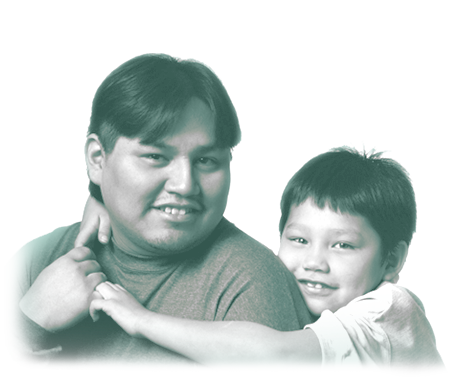Le programme de recherche Bonnes Nuits, Jours Meilleurs (BNJM) est dirigé par le Dr Penny Corkum (R. Psych) à l‘Université Dalhousie. Le Dr Corkum est professeur titulaire au département de psychologie et de neurosciences et est également psychologue pour enfants. Elle est à la tête de l’équipe de recherche Bonnes Nuits, Jours Meilleurs, composée d’une équipe d’experts canadiens en sommeil pédiatrique et des stagiaires en santé du sommeil à travers le Canada. Nos programmes basés sur des preuves peuvent être trouvés dans le menu avec plus d’informations sur le fonctionnement de chaque programme, les prévues pour le programme et les prochaines étapes en termes de développement et d’évaluation.
Problème
Au cours de la dernière décennie, le Dr Penny Corkum (R. Psych), ses collègues et ses stagiaires se sont concentrés sur la résolution d’un problème: le manque de soins basés sur des preuves pour les problèmes de sommeil chez les enfants. Plus récemment, l’équipe adopté une perspective sur l’ensemble de la vie et se concentre sur le sommeil de la petite enfance à l’âge adulte. La plupart de ces recherches sont concentrées sur l’insomnie/les symptômes d’insomnie, qui est le trouble/problème de sommeil le plus courant chez l’enfance et tout au long de la vie.1
ICONS : Résister au coucher, avoir des difficultés à s’endormir, se réveiller trop tôt le matin, les réveils nocturnes
Les taux de ces problèmes augmentent régulièrement en raison de facteurs qui prédisposent (par exemple, l’anxiété/dépression, le stress), précipitent (par exemple, le manque de routines et d’horaires réguliers au coucher et au réveil) et perpétuent (par exemple, faire la grasse matinée le week-end) ces défis liés au sommeil.
Une étude portant sur environ 6 000 enfants de 12 pays du monde entier a révélé que seulement environ 40% des enfants respectent la durée de sommeil recommandée en fonction de leur âge.2 Les enfants canadiens étaient les meilleurs – mais pas très bons non plus, avec plus de 50% ne respectant pas les directives. Cela est particulièrement préoccupant étant donné que nous savons que le sommeil insuffisant est associé à toute une série de conséquences négatives, notamment une santé physique et mentale plus faible, des résultats scolaires inférieurs, plus de difficultés sociales et émotionnelles, et généralement une qualité de vie moindre.3,4 De plus, les enfants privés de sommeil ont souvent des parents privés de sommeil, qui souffrent des mêmes conséquences sur leur fonctionnement quotidien, ce qui impacte la relation parent-enfant. Vivre dans une société 24 heures sur 24 présente ses défis !
Solution
Au cours de la dernière décennie, nous avons développé et évalué un ensemble d’interventions afin que toutes les familles canadiennes puissent avoir accès à des interventions basées sur des preuves pour traiter les problèmes de sommeil chez les enfants. L’utilisation d’internet pour dispenser des interventions augmente l’accessibilité de manière rentable, avec de bonnes preuves d’efficacité.5 Nous développons des interventions sur différentes plateformes, y compris la cyber santé (par exemple, des programmes en ligne), la santé mobile (par exemple, des programmes en ligne), la santé mobile (par exemple, une application smartphone) et l’apprentissage en ligne (systèmes de gestion de l’apprentissage dispensés en ligne). Nous avons adopté une approche systématique pour le développement et l’évaluation de ces programmes.
Tous les programmes ont été développés en utilisant une approche de conception centrée sur l’utilisateur, qui est connue pour améliorer l’expérience de l’utilisateur, l’efficacité de l’intervention et l’adoption.6 Une fois que nous avons un programme utilisable, nous testons l’efficacité du programme en commençant par des essais contrôlés randomisés (ECR) pilotes, puis des ECR à grande échelle. Nous testons également la mise en œuvre pour nous assurer que les programmes sont utilisés de la manière prévue. La durabilité des programmes est toujours prise en compte et évaluée. Nous avons mené des études de faisabilité et des études sur les obstacles et les facilitateurs pour déterminer comment mieux soutenir ces programmes afin qu’ils « vivent » au-delà de la subvention !
Réalisations
Nous avons développé et évalué cinq programmes d’intervention numériques. Chacun de ces programmes peut être trouvé dans le menu avec des informations sur le besoin du programme, son fonctionnement, les preuves pour le programme et les prochaines étapes en termes de développement et d’évaluation. Le programme Bonnes Nuits, Jours Meilleurs est le plus avance dans le processus de développement et d’évaluation, et le nouveau programme est notre programme de Promotion d’un Sommeil Sain pour les professionnels de la santé. Nous avons également développé un hub virtuel qui, nous l’espérons, deviendra une communauté pour la santé du sommeil chez les enfants, et où ces programmes pourront être accessibles ainsi que d’autres ressources pour promouvoir la santé du sommeil chez les enfants !









